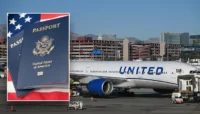On January 15, 2025, a Southwest Airlines pilot, David Paul Allsop, was arrested and charged with DUI before a scheduled takeoff at Savannah/Hilton Head International Airport. Following the arrest, Southwest Airlines confirmed that Allsop was “removed from duty” and extended apologies to affected passengers for the travel disruptions. Flight 3772, originally bound for Chicago Midway International Airport, experienced a nearly five-hour delay. Allsop, aged 52, faced DUI charges and was released on a $3,500 bond. The arrest stemmed from a Transportation Security Administration officer detecting the smell of alcohol. According to the Federal Aviation Administration regulations, pilots must not consume alcohol within eight hours of flying or have a blood alcohol concentration of 0.04% or higher. This incident follows a similar case in March 2024, where a Delta Airlines pilot was jailed for ten months for reporting to duty intoxicated.
Blog Post: Ensuring Safety in the Skies: The Imperative of Pilot Sobriety
In the realm of aviation, safety is paramount. The recent arrest of a Southwest Airlines pilot for attempting to operate an aircraft under the influence underscores the critical importance of strict adherence to sobriety regulations.
The Incident
On January 15, 2025, at Savannah/Hilton Head International Airport, a Transportation Security Administration officer detected the smell of alcohol on Captain David Paul Allsop, a 52-year-old Southwest Airlines pilot. Subsequent testing confirmed a blood alcohol concentration exceeding the Federal Aviation Administration’s (FAA) permissible limit of 0.04%. Captain Allsop was promptly arrested and charged with driving under the influence (DUI), leading to a nearly five-hour delay for Flight 3772, which was scheduled to depart for Chicago Midway International Airport. Southwest Airlines acted swiftly, removing Captain Allsop from duty and issuing apologies to the affected passengers.
Regulatory Standards
The FAA mandates that pilots must abstain from alcohol consumption for at least eight hours before flying and maintain a blood alcohol concentration below 0.04%. These stringent regulations are designed to ensure that pilots are in optimal condition to handle the complexities and responsibilities of operating an aircraft.
Broader Implications
This incident is not isolated. In March 2024, a Delta Airlines pilot received a ten-month jail sentence for reporting to duty while intoxicated. Such occurrences highlight the necessity for continuous vigilance and enforcement of sobriety standards within the aviation industry.
Conclusion
The arrest of Captain Allsop serves as a stark reminder of the critical role that pilot sobriety plays in ensuring passenger safety. It underscores the need for rigorous adherence to established regulations and the importance of airline protocols in monitoring and enforcing these standards. As passengers, we place immense trust in the hands of pilots, and it is imperative that this trust is upheld through unwavering commitment to safety and professionalism.








